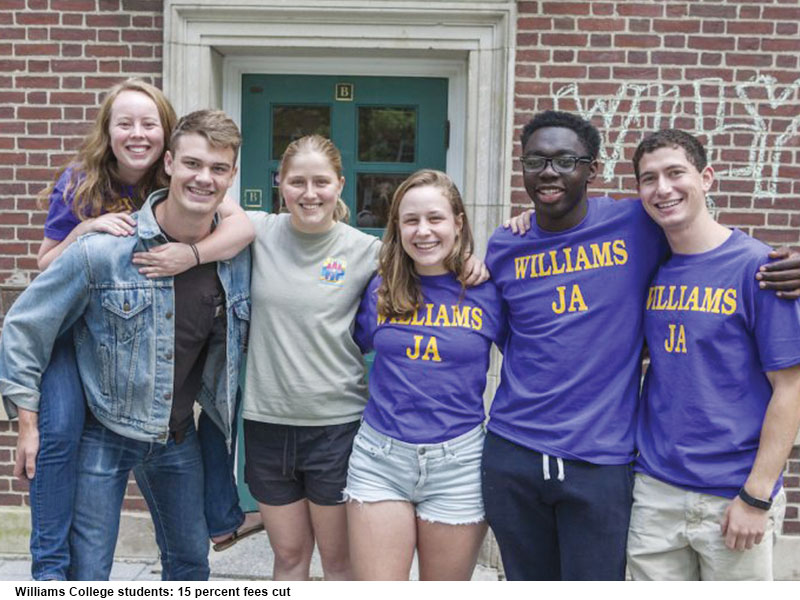
US university leaders have been accused of “suffering from magical thinking” about their hopes of reopening campuses this autumn, as coronavirus cases surge across the country. Institutions have been forced to dial back plans to resume in-person teaching and to cut tuition fees as the US hits new records of over 50,000 infections per day, despite more than three months of lockdowns.
The nation’s academic leaders, like much of the US public, has long been “suffering from magical thinking about the pandemic”, says Roopika Risam, associate professor of secondary and higher education at Salem State University. Some level of denial may be normal, given this “extraordinarily challenging” and unprecedented time. “Universities are no different,” says Risam.
The financial stakes loom as a major factor behind any undue wishfulness. US universities are already counting billions of dollars in losses and tens of thousands of lost jobs due to the pandemic, and they widely expect the problem to get far worse if they can only offer their students online options. But if they do open their campuses – as most are still promising — they face the prospect of people getting sick and dying, and of being held legally liable. “Colleges are in a pickle,” acknowledges Nick Ducoff, co-founder of the student financial advising company Edmit.
There’s plenty of blame for the mess. Many US states, bending to public pressure, have lifted limits on business operations and large gatherings without first making durable progress in limiting infections. Donald Trump encourages those actions and portrayed basic precautions, such as wearing face masks in public, as acts of political rather than medical importance.
Many students, either through intent or inattention, have managed to contribute even while still on summer break. The University of Washington has counted more than 100 cases among its students, many tracked to its fraternity houses. The area of Alabama around Tuscaloosa has several hundred infections among people younger than 25, attributed in part to parties with college students reportedly trying to share the virus.
The nation’s better-known and better-resourced universities certainly have competitive advantages. Williams College has cut its 2020-21 fees by 15 percent, the College of William & Mary is backing off a planned tuition hike, and Purdue University is spending some $50 million (Rs.375 crore) on campus protections such as Plexiglas barriers and redesigned classrooms. Cornell University is still planning in-person instruction, citing a study by one of its own researchers that concludes that closing classrooms would be medically riskier.
(Excerpted and adapted from Times Higher Education)























